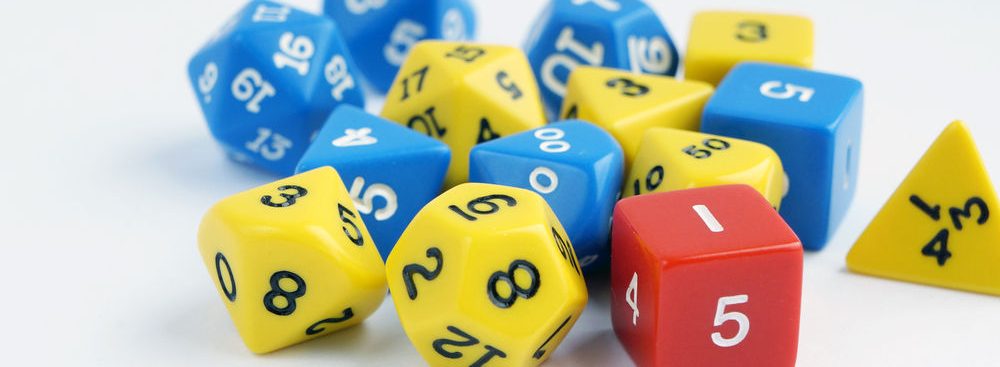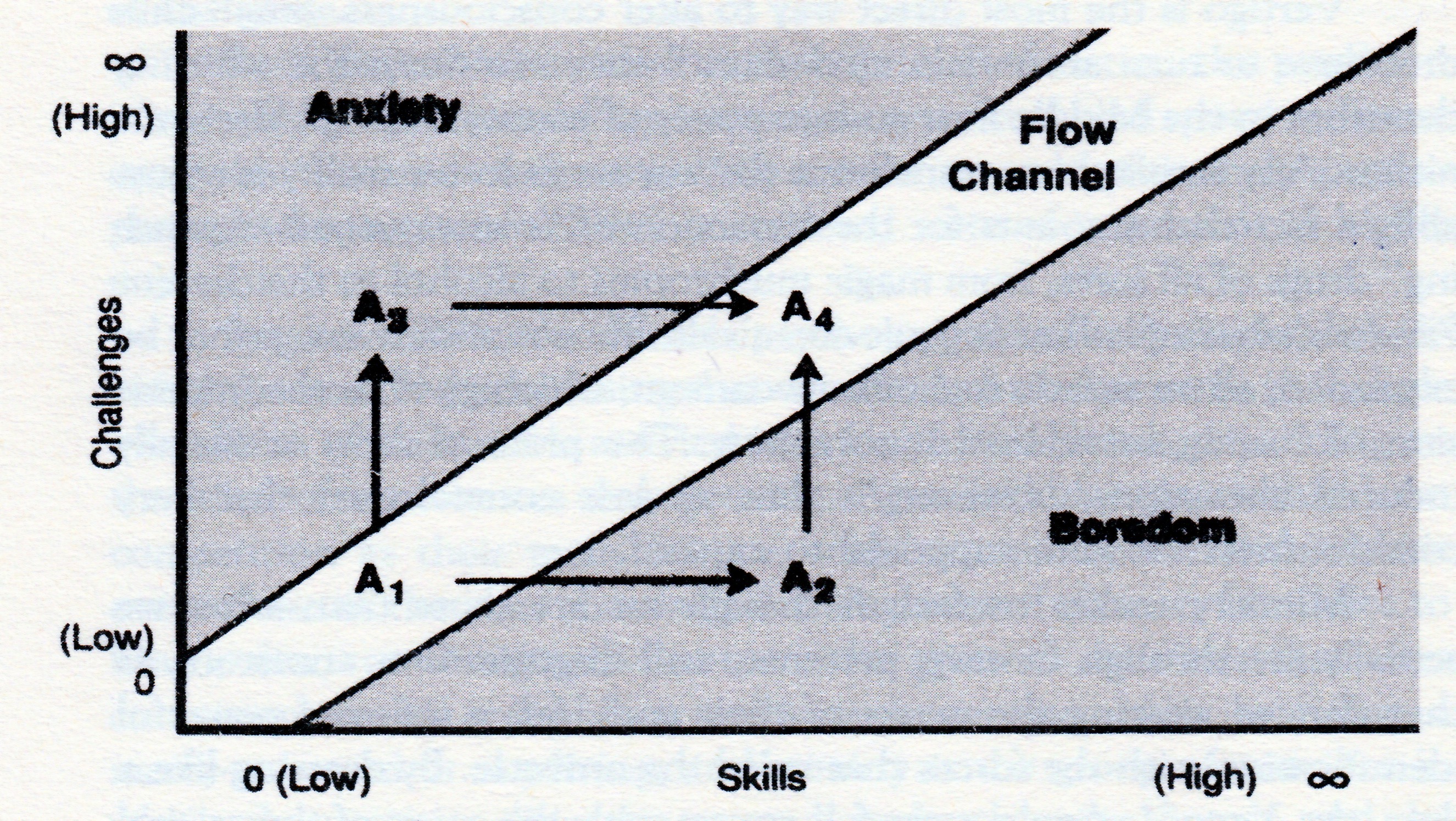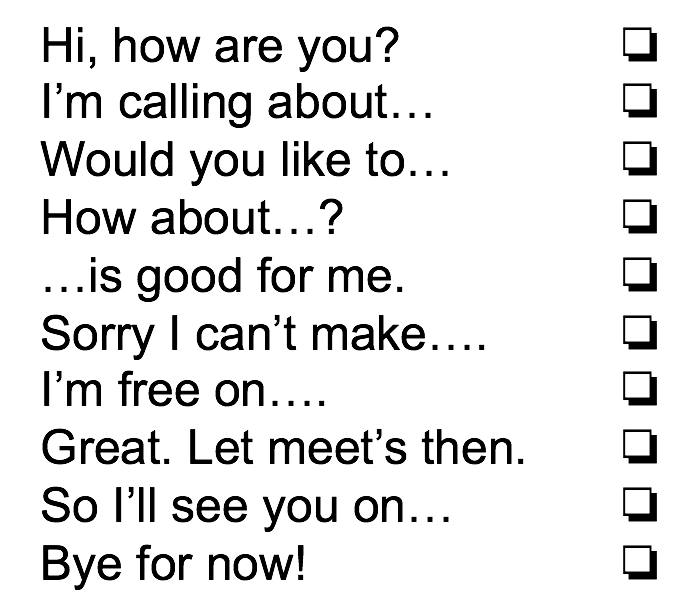
Over a thousand teachers attended the webinars on Using games for win-win learning and there was plenty of discussion in the chatbox with teachers sharing their ideas and opinions on using games. Here are some of the comments and questions that were raised.
With reference to Csikszentmihalyi’s theory of Flow, how do we take students from A1 to A4?
Early on this webinar we looked at the work of Mihaly Csikszentmihalyi and his theory of Flow. In his book of the same name, the author presents the idea that when we are truly engaged in an activity we enter a state of ‘flow’ or the ‘flow channel’, as shown in the diagram below. In pages 72-77, Csikszentmihalyi makes particular reference to the use of games as a form of activity which encourages flow. For example, when we present new language to students and they start using it, they are probably engaged at A1 in the diagram. If we drill that language repeatedly, then after a while student might become bored and go to A2. If we then add too much challenge to the task, students can become anxious and go to A3. If we add the right amount of challenge to the new language, students continue up the flow channel to A4. The author suggests that playing games offers an effective way to achieve this.

Diagram from Csikszentmihalyi, M. (2002). Flow. Rider publishing. p74.
Are all games a form of controlled practice?
This question came out of a discussion on what type of classroom practice games are useful for. In particular, there is a view that games are a type of classroom drilling. In other words, that when we introduce a new language structure and drill it with students, games can offer another kind of drill where students practise the target language in a very controlled way. With many types of language games based on the idea of dominoes or pelmanism (also known as memory) this is probably true. However, there are also types of role-playing games which encourage fluency practice and authentic communicative situations. So the answer is that it depends on the type of game you are using as to how controlled the practice is.
Sometimes students become so interested in the game, they forget to use English and slip back into their mother tongue. How can we make sure they keep using English?
There was a lively discussion on the topic of how to make sure students keep using English when they became so focused on winning the game itself. Participants shared various experiences and views on this. One option was to take points away from a student or a team when they didn’t speak English. On the other hand, one teacher, Helen Beesley, also pointed out that points should be given for use of English during a game for positive reinforcement. Similarly, when playing a boardgame, students could miss a go if they don’t speak English or have another go if they use English well.
What kind of authentic board games on the market are useful for language learning? Participants answered this questions with various suggestions including Monopoly and The Game of Life with Business English to practise the language of finance, or word-based games such as Taboo and Pictionary.
Some students don’t like competitive games in the classroom, especially adults. How do we get them interested?
This question probably created the most debate with teachers agreeing and disagreeing that adult students don’t like playing games. With regard to competitive games, we looked at the idea that competition is often more useful when a student competes against him or herself. For example, if I set up a telephone role play where students practise calling to arrange to meet, I could give students this card with phrases on that I want them to use.

As they speak, they tick off phrases. At the end of the first role play I ask them to count how many phrases they used and get a score out of ten. Then I ask them to repeat the role play and try to get a higher score by using more of the phrases. In this way, a student competes against him/herself. This ‘self-competition’ approach is very similar to principle behind online games such as Quizlet where you try to beat your previous score and reach the next level. It was also noted these online games also offer rewards and badges as well as points and that teachers sometimes need to offer ‘prizes’ to winning teams as well as points.
Overall, it was a very active webinar and I’d like to thank everyone for their enthusiastic participation.
Missed the webinar? If you’re a member of the Oxford Teacher’s Club, you can catch the recording right here in the webinar library. If you’re not yet a member, registration is free and shouldn’t take long at all.
John Hughes likes using games in his own classroom and he designs games for his course books. He is a lead author on Business Result, Successful Meetings and Successful Presentations (published by Oxford University Press). He also runs teacher training courses, and is a regular ELT blogger: www.elteachertrainer.com.

